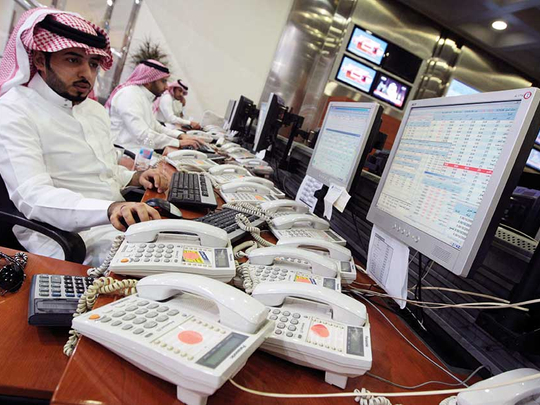
LONDON
Emerging stocks inched to new two-year highs on Friday and were set to end the week in the black but Qatar’s riyal fell further in the offshore forwards markets after a rollercoaster week that saw its stocks lose 7 per cent.
Overall emerging markets were kept in check by a firmer dollar and weaker Chinese factory gate prices that again cast doubts on economic growth, but MSCI’s emerging equity index hovered near flat for a half-per cent rise this week.
Qatari stocks had stabilised on Thursday after sharp falls but pressure on its currency and bonds showed little sign of abating, with one-year dollar/riyal forwards hitting the lowest since December 2015 in offshore trade.
The riyal has traded as low as 3.7 per dollar in onshore forward markets, Thomson Reuters data shows, a record low, and some 1.6 per cent below its spot pegged rate.
Sovereign credit default swaps (CDS) also rose to a new seven-month high of 101 basis points (bps), almost double week-ago levels, according to IHS Markit.
Saudi CDS touched their highest since February, indicating some spill over to the rest of the Gulf but this also is not expected to be serious.
“Obviously this is not a positive story for ... any of the other countries ... it has a negative impact on the image of GCC [Gulf Cooperation Council] as one unit and it makes it potentially more difficult to implement reforms overall,” MUFG strategist Trieu Pham said. He noted the GCC plan to implement a value-added tax from next year.
But a positive global backdrop would limit the fallout, he said. “We see that even Qatar [assets] has not gone through the roof. At this point everything looks controllable so I don’t see it spilling out [of the Middle East].” Elsewhere, the Czech crown jumped 0.4 per cent to a new three-year high versus the euro, with higher-than-expected May inflation data pointing to possible monetary tightening later this year, and contrasting with the European Central Bank’s [ECB’s] dovish stance.
Czech bond yields rose across the curve, with five-year yields hitting 10-day highs.
Elsewhere, investors are carefully watching developments in Venezuela, which missed a $30 million interest payment to the CAF development bank, the Development Bank of Latin America, days after missing a $1 billion repayment to Russia.
The Ivory Coast meanwhile issued the first euro-denominated bond sold by any sub-Saharan African country besides South Africa.












